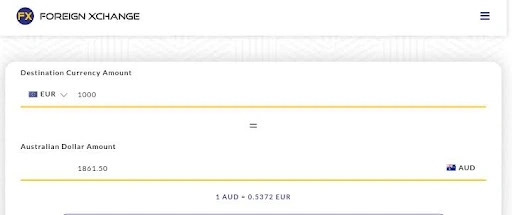Yes, you can lock in your exchange rate before travelling. It’s called hedging. Many seasoned travellers do it to avoid surprises arising from the Aussie Dollar dropping overnight. After all, a 5% dip in the AUD against the USD could cost you hundreds on a long holiday.
At Foreign Xchange, we’ve seen this play out often in the last 10 years. Currency swings have eaten into travel budgets for families, honeymooners, and even corporate travellers. That’s why currency risk management matters. Whether you’re travelling with $2,000 or $20,000, planning ahead helps protect your budget.
So, should you hedge your travel money or take your chances? Let’s break it down.
What is Hedging and How Does it Work?
Currency hedging is simply a risk management strategy that involves using foreign exchange instruments to protect individuals, businesses and investors from potential losses caused by unfavourable changes in foreign exchange rates.
In other words, hedging is simply protecting yourself against unpredictable currency movements. It’s like locking the door before the storm hits.
Example: You plan a trip to Europe. Today, $1 AUD buys €0.61. Two weeks later, it drops to €0.58. Your $5,000 now converts to €2,900 instead of €3,050. That’s a €150 loss, just from waiting.
Hedging strategies for travellers often involve:
- Forward contracts: Locking in today’s rate for a future purchase.
- Prepaid travel cards: Loading foreign currency at a fixed rate.
- Online money transfers: Securing rates instantly before paying suppliers or hotels overseas.
Financial markets use similar methods with futures contracts and other financial instruments. Travellers simply access simplified versions tailored to smaller budgets and shorter timelines.
How to Hedge Foreign Currency at Foreign Xchange
At Foreign Xchange, we offer a practical, simplified currency hedging strategy for Aussie travellers who want certainty and no surprises before flying out.
Step 1: Use our rate tracker Foreign Xchange to get notified when AUD is at the strongest rate.
Step 2: You can then lock in your exchange rate to your preferred foreign currency at this point.

Step 3: Then, select what your preferred pickup date is so we can hold until you need your currency.

This means if the rate drops even when you’re not ready to utilise your foreign currency, you don’t lose out. There are also zero reloading fees, meaning that you can top up as many times as you want.
Pros and Cons of Locking in Your Exchange Rate
Here’s a clear look at both sides:
Pros
- Budget certainty: Know your exact costs before leaving home.
- Protection from volatility: Avoid negative events, such as sudden interest rate cuts.
- Peace of mind: One less thing to worry about while travelling.
Cons
- Missed gains: If the AUD strengthens, you can’t benefit.
- Less flexibility: Changing plans later might be harder.
Regardless, families on tight budgets usually value certainty more than speculative gains. Business travellers with fixed expense claims often hedge too. It keeps reports accurate and managers happy.
When is Hedging Worth Considering?
Not every trip needs hedging. But some situations make it worth a serious look.
Travelling During Volatile Markets
Election years, wars, or economic downturns can significantly impact currency prices. In 2020, for instance, COVID-19 saw the Aussie Dollar plunge nearly 12% against the USD within three weeks. Hedging would have protected holiday budgets then.
Large Travel Budgets or Business Trips
The bigger the spend, the higher the risk. A $20,000 business trip exposed to a 3% AUD drop loses $600 instantly.
Hedging strategies offset potential losses and keep accounts predictable.
Long-Term Planners vs. Last-Minute Travellers
People booking months ahead usually benefit more from locking in rates early. Last-minute travellers often have smaller exposure windows, so the risk is lower.
Frequently Asked Questions
How far in advance can I lock in an exchange rate?
Most providers in Australia let you lock in a rate for up to 12 months using forward contracts. At Foreign Xchange, you can lock in your exchange rate in advance for more than a year, using the simplified process introduced earlier.
Is hedging only for big amounts, or small trips too?
Hedging works for both. A family heading to Bali with a $2,500 budget can fix their rate now and avoid losing $150–$200 if the Aussie Dollar falls 5% before departure. Larger trips, like a $15,000 Europe holiday, carry a bigger risk — a 3% drop adds $450 to your costs overnight.
What happens if the AUD strengthens after I lock in?
You stay at the original rate, so no gains if the dollar rises. For instance, if you lock in at 0.62 and it jumps to 0.65, your $5,000 still converts at 0.62. Hedging is about protecting your budget from losses, not speculating on wins.
Make the Right Choice for Your Trip
Hedging protects travellers from surprise costs when currency markets swing. It offers certainty, especially during volatile times or for big-budget trips. If peace of mind beats gambling on the market, check live rates early and weigh your options. Check today’s rates now and lock it in here: Buy and Hedge AUD
